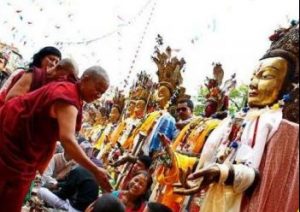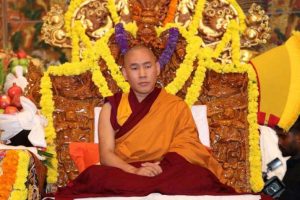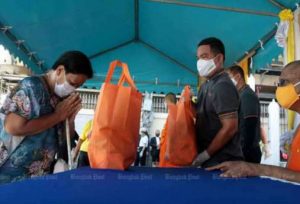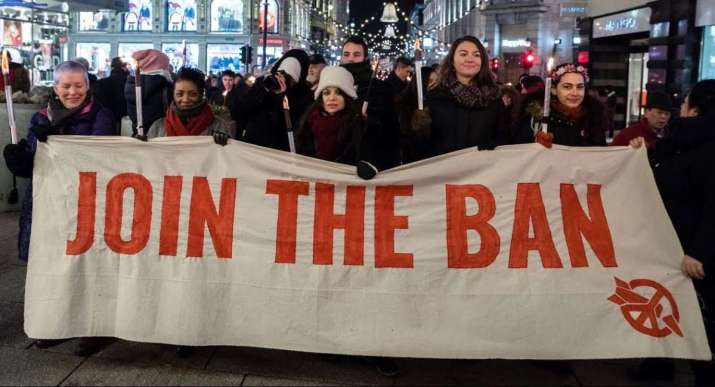
Buddhist leaders have hailed the the recent world peace milestone reached over the weekend when Honduras became the all-important 50th nation to ratify an international treaty to ban nuclear weapons, paving the way for the establishment of a comprehensive ban on nuclearn arms.
With the addition of the 50th signatory, the Treaty on the Prohibition of Nuclear Weapons, the first legally binding international agreement to comprehensively ban nuclear weapons, will come into force as international law on 22 January 2021, 90 days after the ratification by Honduras on 24 October. The international treaty, adopted on 7 July 2017, is ultimately aimed at the total elimination of nuclear weapons of war.*
In a written public statement on Monday, His Holiness the Dalai Lama lauded the news as a welcome development for the future of humanity, bringing the world one step closer to “more enlightened and civilized arrangements for resolving conflicts:”
I have no doubt that this treaty’s coming into force will contribute to even more concerted efforts to do away with these dreadful weapons and secure genuine and lasting peace in our world. It is my belief that our generation has arrived at the threshold of a new era in human history. Because we are all interdependent, our vast and diverse human family must learn to live together in peace. I commend the United Nations and the concerned member states that have made this treaty possible. It is an act of universal responsibility that recognizes the fundamental oneness of humanity.
The world has now taken the first positive step towards a more peaceful future, but our ultimate goal should be the demilitarization of the entire planet. I believe this is feasible if proper plans are made and people are educated to their advantages. Since the first step, the intention to eliminate nuclear weapons has been taken; ultimately total demilitarization can be achieved. (His Holiness the 14th Dalai Lama of Tibet)
As an avowed campaigner for the elimination of all nuclear weapons, I welcome the fact that the Treaty on the Prohibition of Nuclear Weapons has now been ratified by fifty countries and will come into force from January next year. https://t.co/wlxji7VM4f
— Dalai Lama (@DalaiLama) October 26, 2020
The Tokyo-based Nichiren Buddhist organization Soka Gakkai International also welcomed the ratification of the UN nuclear treaty with a public statement on Monday. Soka Gakkai International’s director general for Peace and Global Issues, Hirotsugu Terasaki, stated: “The entry into force of the TPNW establishes the fundamental norm that nuclear weapons are subject to comprehensive prohibition. This has a profound historical significance. It is to be hoped that more countries will ratify the treaty by the time of its entry into force, thus further strengthening it as a prohibitory norm.” (Soka Gakkai international)
This year marks the significant milestone of 75 years since the atomic bombings of Hiroshima and Nagasaki. We would like to express our deepest respect and appreciation to all those involved in the long struggle for a world free from the scourge of nuclear weapons, including the hibakusha, the states that played a leading role in this effort, the United Nations and its agencies, international organizations, as well as our friends and colleagues in the NGO community, such as the International Campaign to Abolish Nuclear Weapons (ICAN), with whom we have worked over the years. . . .
It is up to civil society to decide if we will continue to tolerate humanity being held hostage by nuclear weapons, or whether we will raise our voices as an irresistible force for their banning and abolition. The Soka Gakkai and the SGI are fully committed to continuing our efforts to expand global people’s solidarity toward the realization of a world free from nuclear weapons. (Soka Gakkai international)
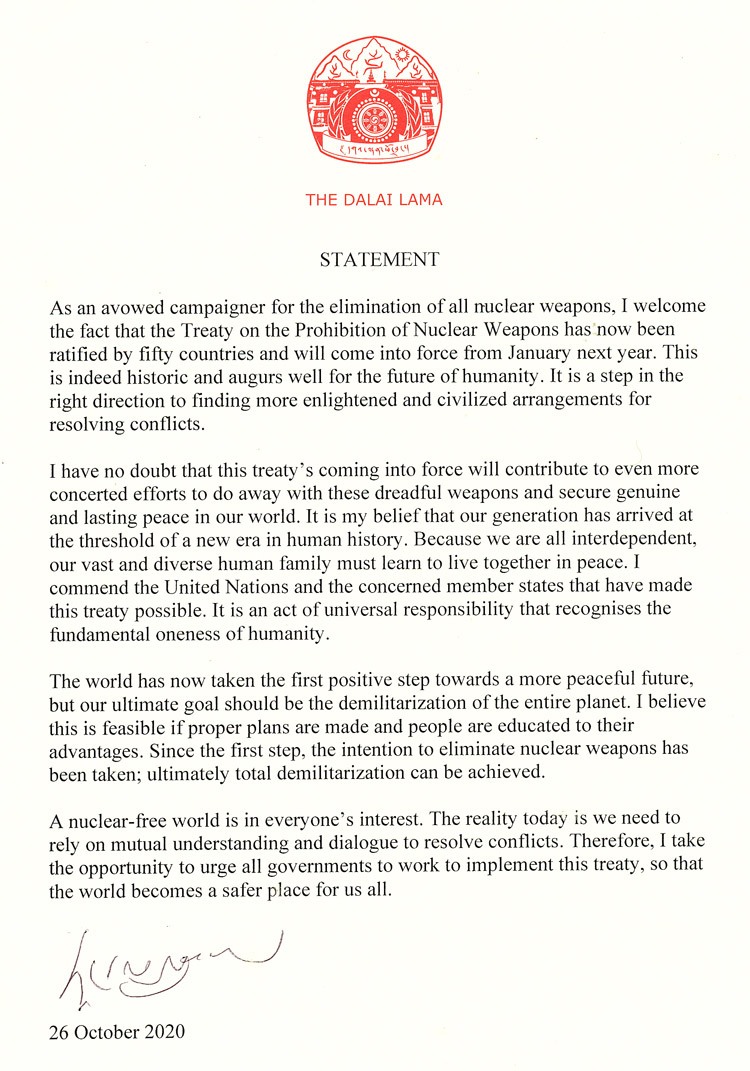
Soka Gakkai called on countries with nuclear arms and those dependent on nuclear arms—including Japan, the only nation to have experienced the devastation caused by a nuclear attack when the United States dropped atomic bombs on the cities of Hiroshima and Nagasaki—to participate in the first meeting of those countries party to the treaty, to be held within a year of its entering into force.
The secretary-general of the UN, Antonio Guterres, described the historic development as the culmination of a worldwide movement “to draw attention to the catastrophic humanitarian consequences of any use of nuclear weapons,” according to a statement from his spokesman, and “a tribute to the survivors of nuclear explosions and tests, many of whom advocated for this treaty.” (Al Jazeera)
Guterres also said the treaty “represents a meaningful commitment towards the total elimination of nuclear weapons, which remains the highest disarmament priority of the United Nations.” (The Guardian)
As of 25 October, 84 countries have signed the treaty and 50 have ratified the agreement. All countries holding nuclear arms—including China, France, India, North Korea, Pakistan, Russia, the United Kingdom, and the United States—and others that either come under the protection of the world’s nuclear powers or host weapons on their behalf, boycotted treaty negotiations. Only the Netherlands, which participated in the talks despite hosting US nuclear weapons on its territory, voted against the treaty. Singapore abstained.
The treaty prohibits the development, testing, production, stockpiling, stationing, transfer, use and threat of use of nuclear weapons, for those nations that have ratified it. For nuclear powers joining the treaty, it provides for a time-bound framework for negotiations leading to the verified and irreversible elimination of nuclear arms programs.
* Religious Communities Laud UN Treaty to End Nuclear Weapons (Buddhistdoor Global)
See more
Statement on the UN Treaty on the Prohibition of Nuclear Weapons (His Holiness the 14th Dalai Lama of Tibet)
SGI Statement on the Ratification of the Treaty on the Prohibition of Nuclear Weapons by 50 States (Soka Gakkai international)
Treaty to ban nuclear weapons made official with 50th UN signatory (The Guardian)
Treaty banning nuclear weapons to enter into force (Al Jazeera)
9. Treaty on the Prohibition of Nuclear Weapons (United Nations Treaty Collection)










